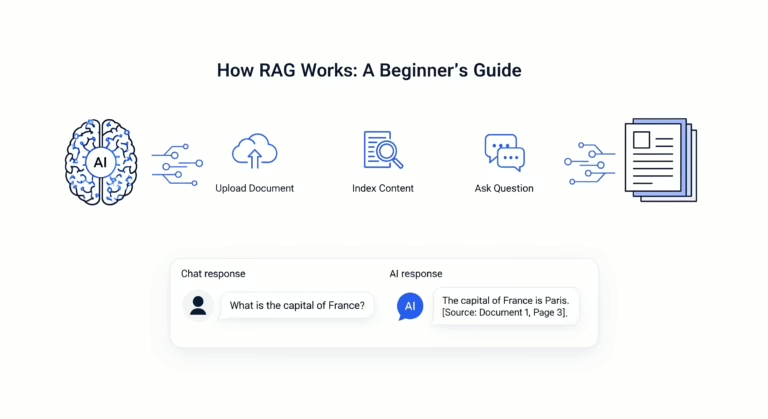AI tools for SEO meta titles and descriptions are revolutionizing how marketers optimize their content for search engines. In the competitive landscape of digital marketing, your meta titles and descriptions serve as the virtual handshake between your content and potential readers. These crucial HTML elements appear in search engine results pages (SERPs), acting as the first point of contact that can either attract clicks or send users scrolling past your site. Crafting compelling meta tags is not just an art—it’s a science that directly impacts your click-through rates (CTR) and organic visibility.
While meta tags won’t directly boost your search rankings, they significantly influence user behavior. A well-optimized meta description can be the deciding factor in whether a searcher chooses your page over a competitor’s. This is where artificial intelligence is revolutionizing SEO practices. AI-powered tools can generate, optimize, and test meta titles and descriptions at scale, saving valuable time while improving performance.
This comprehensive guide will explore the best AI tools for SEO meta titles and descriptions in 2025, complete with practical tips and strategic insights to enhance your search presence. Whether you’re looking to improve your existing AI tools for SEO meta titles and descriptions strategy or starting fresh, this guide covers everything you need to know.
Table of Contents
Why meta titles and descriptions matter for SEO
Meta titles and descriptions function as your website’s packaging in search results. The meta title (or title tag) is the clickable headline that appears in blue text on SERPs, while the meta description is the brief summary text beneath it. Together, they serve several critical functions:
- First Impression Formation: Users make split-second decisions based on these snippets whether your content matches their search intent.
- Click-Through Rate Influence: Compelling meta tags can significantly improve your CTR, which indirectly signals to search engines that your content is relevant and valuable.
- Relevance Signaling: While not direct ranking factors, well-crafted meta tags help search engines understand your page’s content and context.
- Keyword Optimization: Including target keywords in meta tags reinforces your page’s relevance for those search queries.
According to a recent Moz study on meta descriptions, pages with optimized meta tags can experience up to 5.8% higher click-through rates. When Google doesn’t find your meta description sufficiently relevant or compelling, it may generate its own snippet from your page content. Using AI tools for SEO meta titles and descriptions helps ensure your meta tags are optimized to avoid this scenario and present your content exactly as you intend. The right AI tools for SEO meta titles and descriptions can make this process efficient and effective.
Best practices for effective meta titles and descriptions
Before incorporating AI tools into your workflow, understanding the fundamental principles of effective meta tags is essential. These guidelines will help you evaluate and refine AI-generated suggestions.
Meta title best practices
- Optimal Length: Keep titles between 50-60 characters to prevent truncation in search results.
- Keyword Placement: Include primary keywords near the beginning of the title where they have the most impact.
- Brand Inclusion: Add your brand name at the end, especially for well-recognized companies.
- Compelling Language: Use action-oriented verbs and emotional triggers to encourage clicks.
- Uniqueness: Ensure every page on your site has a distinct meta title that accurately reflects its content.
Meta description best practices
- Character Limits: Aim for 155-160 characters to ensure full visibility in SERPs.
- Keyword Integration: Naturally incorporate target keywords since they may be bolded when matching search queries.
- Clear Value Proposition: Clearly state what users will gain by clicking on your result.
- Call to Action (CTA): Include action-oriented phrases like “Learn more,” “Discover,” or “Shop now” to encourage engagement.
- Content Accuracy: Ensure the description accurately reflects the page content to reduce bounce rates.
The Google Search Central documentation provides excellent guidance on creating effective meta descriptions that meet their guidelines.
Top AI tools for meta titles and descriptions in 2025
The market offers numerous AI-powered solutions for meta tag generation, each with unique strengths. The following table provides a quick comparison of leading tools that represent the best AI tools for SEO meta titles and descriptions available today:
| Tool Name | Best For | Key Features | Pricing |
|---|---|---|---|
| SEO.ai | SEO teams needing fast, optimized meta tags | AI-powered title and description generation, SERP analysis | Free tool available; paid plans start at $49/month |
| Junia AI | Brands wanting tone customization and bulk processing | Customizable tone/styles, bulk generation capability | Free meta title generator available |
| Ahrefs | SEO professionals already using the Ahrefs ecosystem | Tone selection, multiple variations, integrates with Ahrefs’ SEO tools | Free meta description generator available; paid plans start at $129/month |
| Scalenut | Content marketers wanting context-aware descriptions | GPT-3 technology, uses title/keywords/summary for context | Completely free |
| Team-GPT | Teams wanting collaborative prompt building | Custom prompt creation, multiple AI model support, collaboration features | Starts at $25/user/month |
SEO.ai
SEO.ai offers specialized tools for both meta title and description generation. Their approach focuses on creating SEO-friendly tags that balance keyword optimization with user engagement. The platform uses AI algorithms trained on high-performing SERP results to generate suggestions that aim for the highest possible CTR. The process is straightforward: paste your content, click generate, and select from multiple optimized options. This tool is particularly valuable for content teams needing to produce numerous optimized meta tags efficiently. When evaluating AI tools for SEO meta titles and descriptions, SEO.ai stands out for its specialized focus.
Junia AI’s meta title generator
Junia AI stands out for its customization options, allowing users to select specific tones and writing styles that align with their brand voice. This flexibility ensures generated titles don’t just contain the right keywords but also resonate with your target audience. The tool’s bulk generation capability makes it ideal for large websites with extensive content archives needing optimization. For content creators seeking titles that balance SEO requirements with brand personality, Junia AI offers a compelling solution among AI tools for SEO meta titles and descriptions.
Ahrefs meta description generator
Ahrefs, a established name in SEO software, provides a free AI meta description generator that emphasizes ease of use and integration. The tool generates three description variations based on a topic input and tone selection (formal or casual). While it offers less customization than some specialized tools, its strength lies in seamless integration with Ahrefs’ broader SEO ecosystem. For professionals already using Ahrefs for keyword research and competitive analysis, this tool provides a convenient addition to their workflow of AI tools for SEO meta titles and descriptions.
Scalenut meta description generator
Scalenut offers a straightforward, completely free solution for generating meta descriptions. The tool uses GPT-3 technology and considers three key inputs: blog title, a short content summary, and target keyword. This context-aware approach helps create more accurate and relevant descriptions compared to tools that rely solely on keywords. While it generates single descriptions rather than multiple options, its cost-effectiveness and quality output make it valuable for bloggers and small businesses exploring AI tools for SEO meta titles and descriptions.
Team-GPT for custom meta description generation
Team-GPT takes a different approach by offering prompt-building flexibility rather than pre-built templates. Users can create detailed instructions for generating meta descriptions, including character limits, keyword inclusion, and tone preferences. The platform supports multiple AI models (ChatGPT, Claude, Gemini), allowing teams to compare outputs and select the best fit. This solution is particularly valuable for agencies and teams needing consistency across multiple clients or content properties using AI tools for SEO meta titles and descriptions.
How to implement AI-generated meta tags effectively
Simply generating meta tags with AI isn’t enough—implementation strategy determines their effectiveness. Follow this structured approach to maximize results from your AI tools for SEO meta titles and descriptions:
1. Start with comprehensive input
The quality of AI output depends heavily on input quality. When using these AI tools for SEO meta titles and descriptions, provide:
- Primary and secondary keywords you’re targeting
- A concise summary of the page’s core content and value proposition
- Audience context regarding who the content serves
- Brand voice guidelines or tone preferences
2. Generate multiple options
Most AI tools for SEO meta titles and descriptions produce several variations. Generate 3-5 options for each page to compare approaches and phrasing. This diversity lets you select the most compelling version or combine elements from different suggestions.
3. Human editing and refinement
AI provides excellent starting points, but human oversight is crucial when using AI tools for SEO meta titles and descriptions. Always:
- Check for accuracy against page content
- Ensure natural language flow without awkward phrasing
- Inject brand personality where appropriate
- Verify character counts to prevent truncation
4. A/B testing for performance
Where possible, implement A/B testing for different meta tag variations. Tools like Google Search Console can help track CTR differences, providing data-driven insights for future optimizations with your AI tools for SEO meta titles and descriptions.
5. Regular audits and updates
Search trends and algorithms evolve, so conduct quarterly audits of your meta tags. AI tools for SEO meta titles and descriptions can help refresh outdated descriptions and titles to maintain peak performance. Consider using our comprehensive SEO audit checklist to ensure you’re covering all essential elements.
The future of AI in SEO meta tag creation
As search continues evolving, so will AI applications for meta tag optimization. Several trends are shaping this space in 2025, particularly in the realm of AI tools for SEO meta titles and descriptions:
- Generative Engine Optimization (GEO): Beyond traditional SEO, tools now help optimize content for visibility in AI search interfaces like ChatGPT and Google’s AI Overviews.
- Personalization at Scale: AI increasingly enables dynamic meta tag customization based on user data, search history, and device type.
- Performance Prediction: Advanced AI can forecast meta tag performance before implementation, using historical data and SERP analysis.
- Integration with Full SEO Workflows: Meta tag generation is becoming part of comprehensive AI-powered SEO platforms that handle everything from keyword research to content optimization.
The evolution of AI tools for SEO meta titles and descriptions continues to make the process more sophisticated and results-driven. For more insights on future SEO trends, check out our AI Content Creation: How to Write Blog Posts 10x Faster with Free Tools.
Conclusion
AI tools for SEO meta titles and descriptions represent a significant advancement in SEO efficiency and effectiveness. These solutions eliminate the guesswork and time commitment traditionally associated with meta tag optimization while improving CTR potential. The key lies in selecting the right AI tools for SEO meta titles and descriptions for your specific needs—whether prioritising cost-effectiveness, customization, or integration with existing workflows.
Remember that AI should augment rather than replace human expertise. The most successful approach combines AI efficiency with human judgment to create meta tags that are both search-engine friendly and compelling to human readers. As you integrate AI tools for SEO meta titles and descriptions into your workflow, focus on providing quality input, maintaining brand consistency, and continuously testing and refining based on performance data.
By leveraging the power of AI tools for SEO meta titles and descriptions while adhering to fundamental SEO principles, you can create meta titles and descriptions that significantly enhance your search visibility and drive qualified traffic to your website. The right AI tools for SEO meta titles and descriptions can transform your approach to search optimization in 2025 and beyond.
For more guidance on implementing these tools effectively, explore our complete content optimization guide that covers everything from keyword research to technical SEO implementation.




